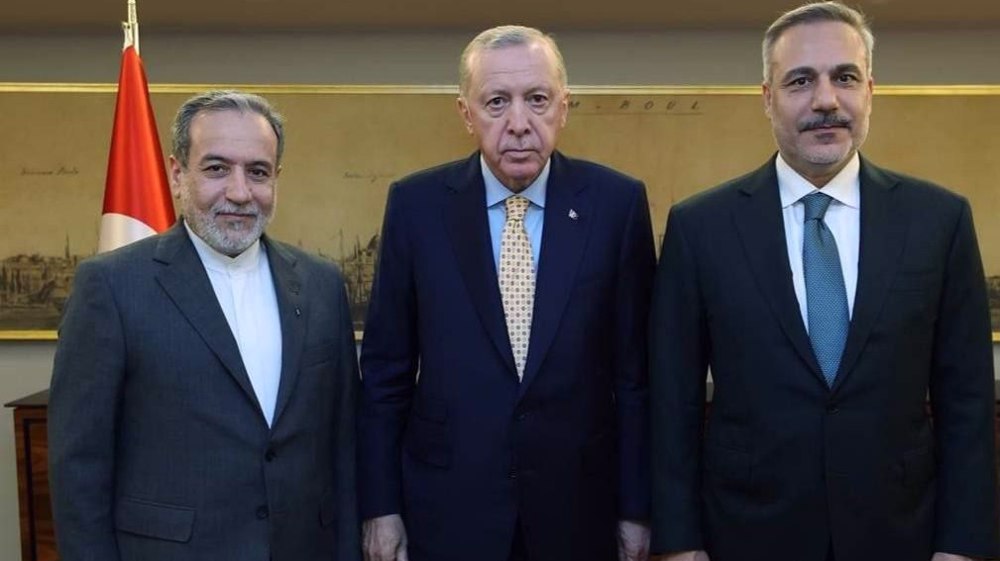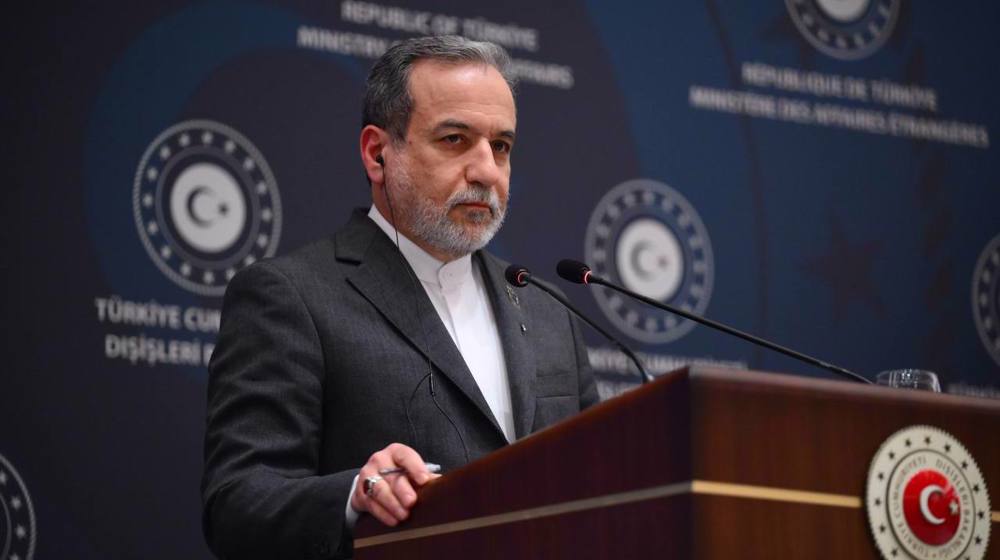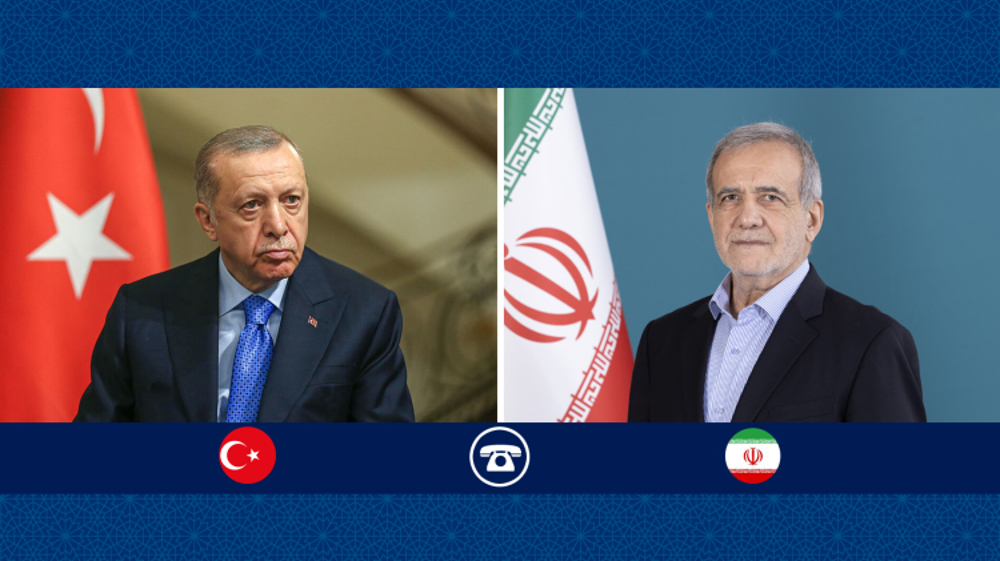Turkey forcibly sending Syrians back to war zone: Amnesty
Amnesty International says Turkey has forcibly expelled thousands of Syrian refugees back to their war-torn homeland in recent months.
Turkish authorities have, on a daily basis, forced around 100 Syrian men, women and children to return home since mid-January, the UK-based rights group said in a report based on testimonies.
John Dalhuisen, Amnesty’s director for Europe and Central Asia, also took a swipe at European leaders who have hardened their stances, shutting doors to those mostly fleeing conflict zones in recent months.
“In their desperation to seal their borders, EU leaders have willfully ignored the simplest of facts: Turkey is not a safe country for Syrian refugees and is getting less safe by the day,” he said.
The report also said such mass returns to Syria are “illegal” under Turkish, EU and international law.
“The large-scale returns of Syrian refugees we have documented highlight the fatal flaws in the EU-Turkey deal. It is a deal that can only be implemented with the hardest of hearts and a blithe disregard for international law,” Dalhuisen added.
On March 18, Ankara and the EU signed a deal aimed at curbing the huge influx of asylum seekers, mostly Syrians, to Europe.
Under the accord, a Syrian refugee will be settled in Europe legally in return for every refugee taken back by Turkey from Greece.
Rights groups, including Amnesty International, say the deal, which will take effect on April 4, poses threats to the rights of asylum seekers, questioning whether Turkey is a safe country for them.
They also argue that the agreement would turn the Greek registration sites into de facto detention centers for people due to be sent back to Turkey.

Amnesty said research shows Turkey has likely expelled several thousand refugees to Syria in the last seven to nine weeks.
“There is a very real risk that some of those the EU sends back to Turkey will suffer the same fate” if the agreement goes ahead as planned, it warned.
The rights body said Ankara has tightened border controls and imposed new visa requirements for Syrians, pushing refugees into the arms of smugglers who charge an average of USD 1,000 per crossing.
Reacting to the reports, Ankara rejected the allegations. A source with the Turkish Foreign Ministry told Reuters that Ankara has maintained an “open door” policy for Syrian refugees.
Turkey is a staunch supporter of militant groups fighting to topple the government in Damascus.
Since the beginning of this year, over 1.2 million refugees have arrived in the EU. Most of them have traveled across the Aegean Sea to Greece before heading north to wealthy countries like Germany and Sweden.
Many blame the pro-war policies adopted by Western states as the root cause of the refugee crisis unfolding in Europe and elsewhere in the world.
Russia urges probe into alleged shootings
On Thursday, Russia accused Turkish troops of shooting refugees on the Syrian border, calling for "swift justice" for those involved in the alleged practice.
“We have been seeing reports in the media regarding the matter, which we will treat with the utmost seriousness,” said Russian Ministry of Foreign Affairs' human rights chief Konstantin Dolgov.
In Brussels, the European Commission spokesperson Natasha Berto voiced concerns over the report, saying the body would be raising the matter with Ankara.
The British daily The Times was first to make the revelation, saying it had learned of unarmed refugees being shot in cold blood while fleeing the conflict in Syria.
The allegations concern 16 adults and three children, all reportedly killed by Turkish border guards as they fled into Turkey to escape the war, the paper has said.
According to the newspaper, a man and his child were killed on February 6 along the eastern side of the border. Two more refugees were reportedly shot dead on March 5 to the west.
The accounts were provided to the Times by the London-based Syrian Observatory for Human Rights, it said.
UNHCR warning
On Friday, the United Nations called for legal safeguards to be in place before refugees are returned to Turkey under the EU agreement while warning that conditions in Greece are deteriorating.
About 51,000 refugees are in Greece, where arrivals more than doubled on Tuesday to 766 from previous days, the UN High Commissioner for Refugees (UNHCR) said.
The agency says nine in 10 of refugees arriving on rickety boats are fleeing for their lives.
"UNHCR is urging parties to the recent EU-Turkey agreement on refugees and migrants to ensure all safeguards are in place before any returns begin. This is in light of continued serious
gaps in both countries," UNHCR spokeswoman Melissa Fleming said.
She said conditions on the islands of Lesbos and Samos, where three people were stabbed in rioting on Thursday night, and at the Athens port of Piraeus and Idomeni at the border with
Macedonia are worsening.
A three-hour fight, believed to have been between Afghan and Syrian refugees, in Piraeus left the area strewn with rocks and broken glass.
Later Friday, lawmakers in Greece were ready to support legislation to deport refugees back to Turkey.
VIDEO | Imam Khomeini at Iran’s Neauphle-le-Château: Revolutionary influence in France
VIDEO | Press TV's news headlines
Israel holds 766 Palestinian bodies, nearly half since October 2023: Report
VIDEO | A new lease of life
Jordan says will not be ‘battleground or launchpad’ against Iran
Iran rules out enriched uranium transfer as part of nuclear deal
Mediterranean dockworkers set to strike against arms flow to Israel
Palestinian committee seeks global help to protect churches amid settler violence










 This makes it easy to access the Press TV website
This makes it easy to access the Press TV website